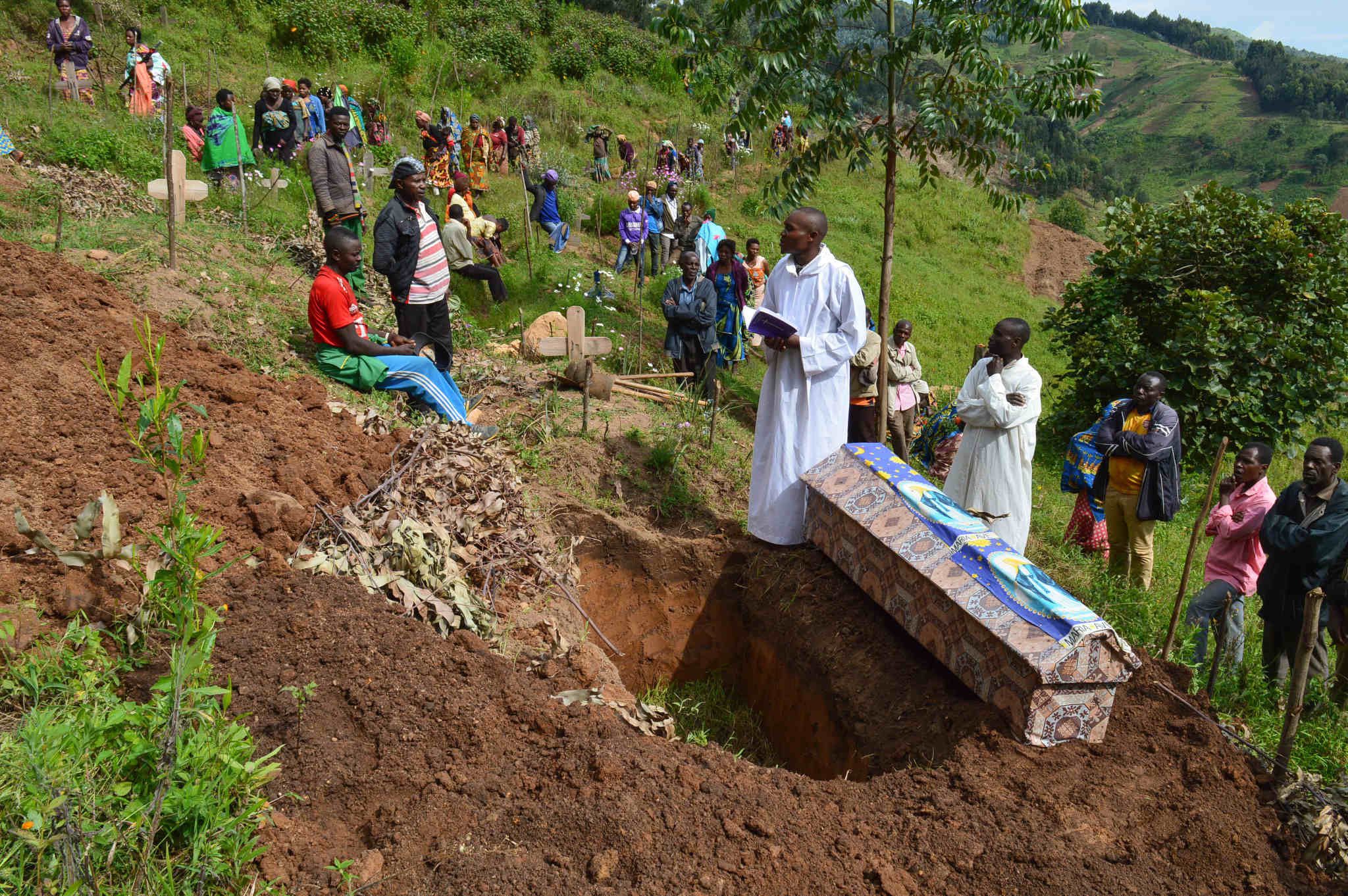- Among the communities of western Kenya, like the Gusii, Luhyas and Luos, this ritual holds another significant purpose. For the married, a widow to the deceased performing the ritual also acts as a binding covenant tying them to the deceased's home.
Tossing a handful of soil into a casket by close family members and friends of the deceased during burial is a symbol of farewell, closure and the return of the body to its origin, 'earth.'
This ritual is practised in many cultures and religions. The accompanying phrase is 'ashes to ashes, dust to dust.' It emphasises the cyclical nature of life and death. The act helps mourners come to the realisation that the deceased is no more, hence starting the journey of healing.
Among the communities of western Kenya, like the Gusii, Luhyas and Luos, this ritual holds another significant purpose. For the married, a widow to the deceased performing the ritual also acts as a binding covenant tying them to the deceased's home.
This simply means that the widow was bound to the dead after death. She cannot get married elsewhere or to someone else.
In the recent past, social media has exposed this ritual from a few burials where widows were hesitant to perform it.
Read More
On March 21, 2025, during a burial in Nyamira County, a woman by the name Mellen Mogaka was assaulted and forced to toss oil into her deceased husband's grave. This happened after the widow refused to engage in the traditional burial rite of tossing soil into the deceased's grave.
The widow was physically attacked by individuals believed to be her in-laws and hired goons by the family. Some suspects were arrested and arraigned in court over the same.
On July 4, 2025, during Albert Ojwang's burial in Homa Bay County, a similar thing happened. The deceased's widow, Nevnina Omondi, refused to perform the rite of tossing the soil into his late husband's grave.
The social media platforms have amplified these incidents and other similar ones, but many Kenyans have not understood the gist of the ritual, except those from western Kenya and understand how the culture works.
Explained below are reasons why a widow may refuse to perform this ritual for her late husband:
Breaking Cultural Norms: Tossing soil into a deceased's grave by the widow acts as a sign of acceptance that the deceased is dead and therefore gives him a proper farewell.
Refusal to comply with this may suggest rejecting the burial process, and this is considered a serious violation of tradition by the communities that practice it.
This may apply to the modern generations that do not believe in culture and traditions because of someone's religion, which may not agree with the tradition.
Not allowing the deceased's spirit to rest: If a widow refuses to participate in this rite, the deceased's spirit may not rest in peace and may return to haunt the family. A widow may do this if they were not living in harmony with his late husband or if the deceased was mistreating her.
Suspicion of Infidelity or Guilt: The widow may also refuse to toss soil into the late husband's grave if she was unfaithful to him, she wished him death, or she participated in the death of the late husband. Therefore, tossing soil can provoke the late husband's spirit to haunt her and deny her peace.
If elders suspect the wife may be a culprit of the same, they may force her to perform the rite as a way of confessing or punishing her for the perceived wrongdoing.
Dowry not paid: A widow may refuse to toss soil into her late husband's grave if the deceased had not married her officially by paying dowry. If the husband dies before paying dowry for his wife, then the wife is at liberty to either toss or not toss soil into the late husband's grave.
Tossing the soil will mean the widow is willing to continue staying with the deceased's family, but if she refuses to toss, it means she has decided to remarry or get herself another husband.
For those who have been perplexed recently by social media platforms highlighting widows refusing to toss soil into their deceased husbands' graves, the above discussion may give answers to your questions.
The ultimate goal in Christianity is from the concept of Genesis 3:19 b "………… for you are dust, and to dust you shall return."











